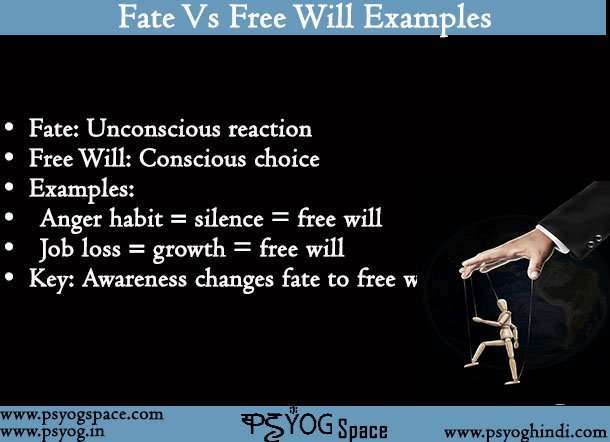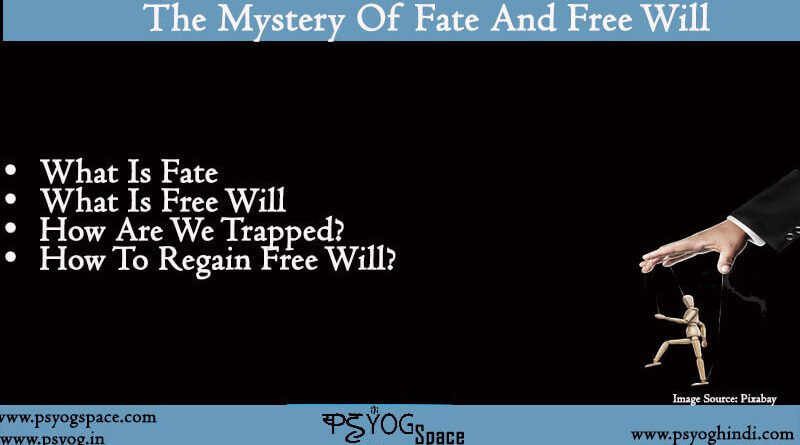Fate Vs Free Will: Examples, From Compulsion To Freedom
Have you ever wondered why some people seem trapped in the same patterns—same struggles, same emotional reactions, same relationships—while others seem to break free and shape life on their terms? It’s a question that leads straight into the heart of the age-old debate: fate vs free will. In this article, we’ll unpack that in a way you’ve probably never heard before. We’ll explore the deeper meaning of free will, see fate vs free will examples, and look at how your own spiritual identity might be the missing piece. By the end, you won’t just know what this debate means—you’ll feel it from the inside out.
What Is Fate
Fate is not just something written in the stars or determined by your horoscope. It’s something much closer to home—something internal. Fate is what happens when you live on autopilot. When your life is being run by the patterns you’ve inherited, the wounds you haven’t healed, and the reactions you never question. (Read: The mystery of God complex)
At its core, fate is the result of past karma—not just in the spiritual sense, but also psychological and emotional karma. Every time you react in the same way, every time you’re driven by unconscious fears or habits, you’re repeating karma. And here’s the most crucial part: karma operates through time. It unfolds in a sequence, a loop. And your physical self, your body and mind, is the vehicle that runs on that track.
When someone dies, we often say “his time was up.” That’s not just poetic—it’s spiritually accurate. The physical body is bound by time. And as long as we’re identified with that body, we’re subject to the rule of time. Which means—we’re also under the influence of the planets, cycles, and fate. In this state, free will doesn’t really exist. You’re not choosing—you’re just reacting. Fate, in this sense, isn’t imposed by the universe. It’s created by unconscious living.
What Is Free Will
Now let’s flip the coin. What is free will? It’s not just about having choices. It’s about the capacity to choose from a place that isn’t programmed. Free will only begins when you step beyond the mind and body—because both are formed out of past karma.
The body carries genetic memory. The mind is shaped by emotional experiences, beliefs, culture. Both are conditioned. When you’re acting from those, you’re not really choosing—you’re just following a script you didn’t write.
But there’s something in you that’s not part of that script. Call it soul, awareness, consciousness, the observer—it doesn’t matter. This part of you isn’t bound by time. It’s not reacting. It’s just there, silently aware. When you start living from that place, free will kicks in. Now you’re no longer caught in loops—you’re creating new paths.
So fate vs free will isn’t just a philosophy class topic. It’s a deep internal shift—from identifying with the program to realizing you’re the programmer.
How To Regain Free Will
Here’s the most important question: if we’ve lost free will, how do we get it back?
It begins by disconnecting from what we think we are. Most of us live as if we are the body. Or the thoughts. Or the name on our ID. But these are just temporary layers. Your true self is none of these things. Your true self is beyond time—and only something beyond time can be free from karma. (Read: Free will and astrology)
To regain free will, you must dis-identify from the mind and body. This doesn’t mean rejecting them. It means seeing them clearly for what they are: tools, not your identity. You use your mind, but you’re not your mind. You care for your body, but you’re not your body.
Through meditation, self-inquiry, or even deep moments of silence, you begin to notice the stillness beneath all the noise. That stillness is where free will lives. From there, you start making decisions not based on fear, habit, or expectation—but from clarity and presence.
This isn’t a quick fix. But it’s the only real way out of fate. The planets may still move. Circumstances may still come and go. But now, you’re no longer being pushed by life. You’re walking through it, awake.
Fate Vs Free Will Examples
Let’s make this real with a few fate vs free will examples.
Imagine someone who’s grown up in a family full of anger. Shouting was the norm. Now, as an adult, they snap in every argument. That’s fate. They’re just repeating the emotional karma they inherited. But now imagine that same person begins to notice this pattern. They pause. They breathe. They choose silence. That’s free will.
Here’s another: someone loses their job unexpectedly. They spiral into victimhood, blaming the world. That’s fate—they’re reacting based on past pain. But another person in the same situation chooses to see it as an opening, a redirection. They reflect, adapt, grow. That’s free will again.
In both fate vs free will examples, the key difference isn’t the situation—it’s the level of awareness. Fate is compulsion. Free will is conscious response.

Conclusion
So where do we land in this ancient debate of fate vs free will? The answer lies in how we live. As long as we stay attached to the mind and body, we’re living through karma, bound by time—and therefore, fate. The planets, time, and cycles seem to rule our life. In that state, even our intelligence takes a backseat. (Read: Mind control as per Bhagavad Gita)
But once we begin to live from the deeper self—pure awareness that’s not stuck in the past—we reclaim free will. We stop reacting and start choosing. We become free, not just in theory, but in the way we actually experience life.
The real battle of fate vs free will isn’t outside—it’s inside. And the most important insight? You’re not the chess piece. You’re the one holding the board.
So yes, the stars may influence the tides. But you? You decide whether to sink, float, or swim. With awareness, you move from fate to freedom.
FAQs
Fate means when we are living under a compulsive state wherein we cannot think or act out of choice. Whereas, free will means that we have transitioned from a compulsive to a conscious state. This happens when a distance is created between the content of our mind, and us.
Yes, they always coexist, the question is, which one are you choosing? When we identify with the mind and lose our conscious choice, we call it fate. However, when we create a distance from our mind, we reach a space of nothingness. This is where we regain our free will.

